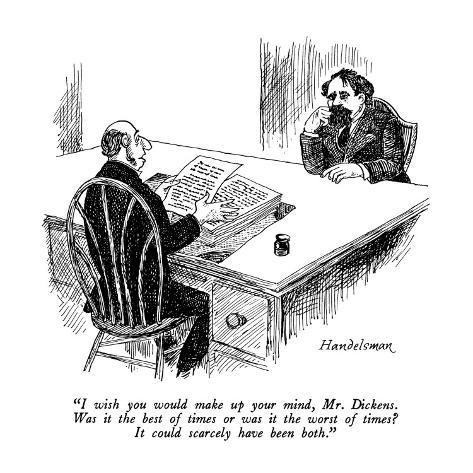We're on vacation until August 6th. Until then, buyer beware: this isn’t the book you’re looking for…
Showing posts with label Charles Dickens. Show all posts
Showing posts with label Charles Dickens. Show all posts
Friday, August 2, 2013
Buyer Beware: Vol. 13
Friday, July 26, 2013
Buyer Beware: Vol. 8
We're on vacation until August 6th. Until then, buyer beware: this isn’t the book you’re looking for…
Wednesday, July 3, 2013
Author Look-Alikes: Vol. 17
Theodore
Dreiser and Carl Reiner. If you don’t see it, I don’t know what to tell you:
Zora
Neale Hurston and Queen Latifah: the cheekbones, the nose, the smile, the eyes…
it’s all there:
Vladimir
Nabokov and Alfred Hitchcock are not a bad match:
Neither
are Alexander Solzhenytsin and Edward Norton Jr.:
And when I look at this picture of Charles Dickens all I hear is Vincent Schiavelli
screaming for me to get off his train:
Labels:
Author Look-Alikes,
Charles Dickens,
Solzhenitsyn,
Theodore Dreiser,
Vladimir Nabokov,
Zora Neale Hurston
Friday, November 23, 2012
Literary Lucre
The
idea of money, both the unlikely accumulation of it and the nerve racking experience
of watching it run out, can be a pretty powerful thread to pull the reader through
a book. It’s as universal a theme as there is. But you don’t have to read Og
Mandino or Horatio Alger to see it done. Just consider these lasting images from
some of our literary greats:
- The coffee can piggy bank nailed to the floor of the tenement closet in Betty Smith’s A Tree Grows in Brooklyn – always dutifully fed, and all-too-frequently raided in times of need.
- The bags of gold buried under the brick floor in George Eliot’s Silas Marner - which are dug up for continual counting, but disappear at the hands of a thief.
- The small stash of silver hidden away in the earthen walls of Wang Lung’s farm house in Pearl Buck’s The Good Earth – a stash that is multiplied and invested in land until it becomes the makings of a “great house”.
- The forty dollar kitty of the westward-bound Joad family in Steinbeck’s The Grapes of Wrath - a precarious sum that keeps us on pins and needles to see whether it can get their run-down jalopy across the desert and into California.
Money
can be the driving force of the story, as are the boons bestowed by Pip’s
mysterious benefactor in Dickens’ Great
Expectations. It can raise the
stakes of the plot, as do Bingley’s and Darcy’s fortunes in Jane Austen’s Pride and Prejudice. It can provide a
mysterious back-story for a character as does Jay Gatsby’s ill-gotten wealth in
Fitzgerald’s The Great Gatsby. Or it can be the measure of the rise or fall
of a protagonist, like those experienced by Scarlett in Margaret Mitchell’s Gone With the Wind.
Money
is something we’ve all got experience with (some more than others, to be sure) and
it’s something that most of us keep a keen interest in throughout our lives. So
while a good “up from nothing” story can appeal to all of us, it can be equally
gripping to follow a monied protagonist- whether that’s Hank Reardon fighting
to protect his wealth and his property in Ayn Rand’s Atlas Shrugged , or whether it’s Ebenezer Scrooge finding
inspiration to share his wealth in Dickens’ A
Christmas Carol .
I’m
looking for more great books in this vein. Do any of you have any reading
recommendations to share?
Labels:
Austen,
Betty Smith,
Charles Dickens,
Fitzgerald,
George Eliot,
Margaret Mitchell,
money,
Pearl Buck,
Steinbeck
Tuesday, July 24, 2012
Bookish Nerd Bait: Vol 4
Monday, July 23, 2012
Bookish Nerd Bait: Vol 3
Monday, March 19, 2012
Dickens' Fruit Corners
Yesterday’s
post may have been a little grim for some of you, so why not lighten things up
on a Monday morning?
Go
ahead and grab a snack, or curl up with a good book. Heck, do both. Enjoy your
favorite Dickens' Fruit Corners selection!
Support
ShelfActualization.com:
Friday, March 16, 2012
First Line Friday!
Charles Dickens wrote one of the most recognizable first lines of all time when he penned the opening to A Tale of Two Cities:
“It was the best of times, it was the worst of times, it was the age of wisdom, it was the age of foolishness, it was the epoch of belief, it was the epoch of incredulity, it was the season of Light, it was the season of Darkness, it was the spring of hope, it was the winter of despair, we had everything before us, we had nothing before us, we were all going direct to Heaven, we were all going direct the other way – in short, the period was so far like the present period, that some of its noisiest authorities insisted on its being received, for good or for evil, in the superlative degree of comparison only.”
Subscribe to:
Comments (Atom)












